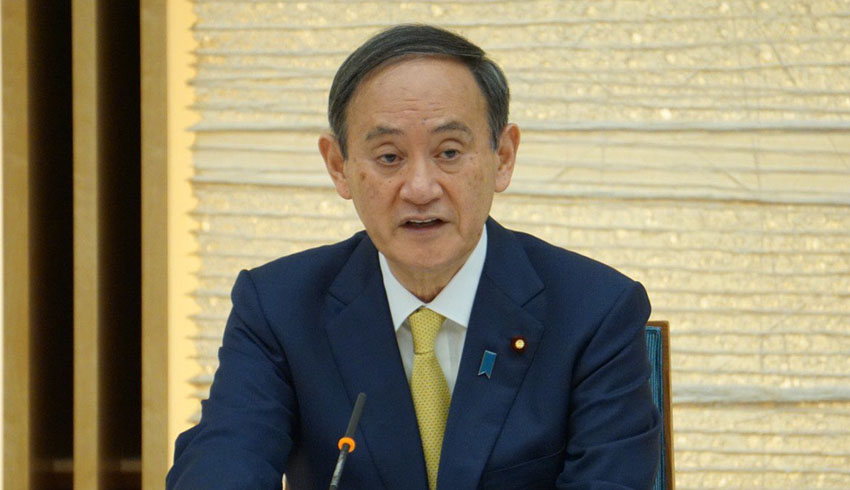Can Japan rise to meet the growing grey zone threats to its defence capabilities?
To continue reading the rest of this article, please log in.
Create free account to get unlimited news articles and more!
Japanese Prime Minister Suga Yoshihide is not just another Abe Shinzo. Despite being from the same political party and surrounding himself with a similar cadre of supporters, Prime Minister Suga has set his sights on reforming and re-energising Japan’s flagging cyber security capabilities to stare down the growing threat of grey zone warfare in the Indo-Pacific.
Hiroki Hunter, commenting in ASPI’s The Strategist last week, outlined that PM Suga won’t blindly follow the path put before him but is rising to address the challenges set forth by Japan’s adversaries in the continuously changing area of information warfare.
Indeed, ongoing tensions in the Indo-Pacific would be lingering on PM Suga’s mind as he laid out his plan to re-assert Japan’s role in the security of the region. Hunter notes that this is evidenced by his regular outreach to international leaders as well as his fervent discussions in Quad talks with India, Australia and the US.
One of the Quad’s priorities determined in their recent discussions? Cyber security. Cyber was recognised as a clear and growing threat, requiring greater co-operation between the four nations.
It’s no surprise that conventional warfare has been increasingly replaced by grey zone warfare – of which cyber and informational confrontation play a substantial role. Conventional warfare is too costly for many nations, both economically and in terms of numbers of lives lost, and thus Japan’s adversaries are relying more and more on these elements to keep war at an arms distance.
Hunter notes that Prime Minister Suga read this writing on the wall. According to Hunter, PM Suga upon witnessing a cyber security drill between Japan, the US, Europe and ASEAN last year, noted, “It is very important that malicious cyber attacks are promptly detected and acted upon, minimising spread of the damage … We cannot act fast and appropriately without close co-operation with other countries.”
Despite a continuation of Abe’s policies, Hunter notes that Japan’s position in the Indo-Pacific has worsened over recent months.
“Is Japan’s security position has, if anything, worsened since Abe’s departure, Suga likely views cybersecurity cooperation as one way to counter these challenges. In a region increasingly characterised by competition, coercive statecraft, economic warfare and active disinformation operations, cybersecurity will continue to be a pivotal issue,” Hunter argues.
Indeed, he further notes that Japan’s cyber security policy appears to be historically misguided. The Cabinet Secretariat’s National Center of Incident Readiness and Strategy for Cybersecurity (NISC), Japan’s foremost cyber security agency, was directed to oversee the cyber security protection of government offices. This left Japanese citizens and businesses without a co-ordinated and country wide agency to combat potential attacks. In fact, this has left the Japanese government open to further breaches, especially when conducting government-to-business and government-to-consumer engagements.
Japan, according to Hunter, needs urgent policy revision in regards to cyber security. But this will not be an easy feat.
“Reform on such a scale has traditionally proven difficult in Japan, and the COVID-19 pandemic has been a rude awakening for Japan on how far behind it is in the adoption of digital technologies. Hospital staff still sign and send papers physically or through fax, a practice that has significantly hindered the government’s response to emerging coronavirus clusters,” Hunter noted.
Perhaps this was a wake-up call for Japan. Hunter outlined the creating a department to oversee digitisation was one of PM Suga’s inaugural policies, but only time will tell if its impactful.
While Japan’s desire to modernise their defence capabilities to address the growing threat of grey zone warfare is a crucial first step, Japan still has considerable cyber security and informational warfare vulnerabilities. It will be a laborious and excruciating task to undertake such rapid modernisation of the Japanese digital infrastructure, but Suga has set the wheels in motion to build a resilient and robust 21s century fighting force – which fully incorporates cyber security.
Get involved with the discussion and let us know your thoughts on Australia's future role and position in the Indo-Pacific region and what you would like to see from Australia's political leaders in terms of partisan and bipartisan agenda setting in the comments section below, or get in touch with
Liam Garman
Editor – Defence and Security, Momentum Media

 Login
Login








